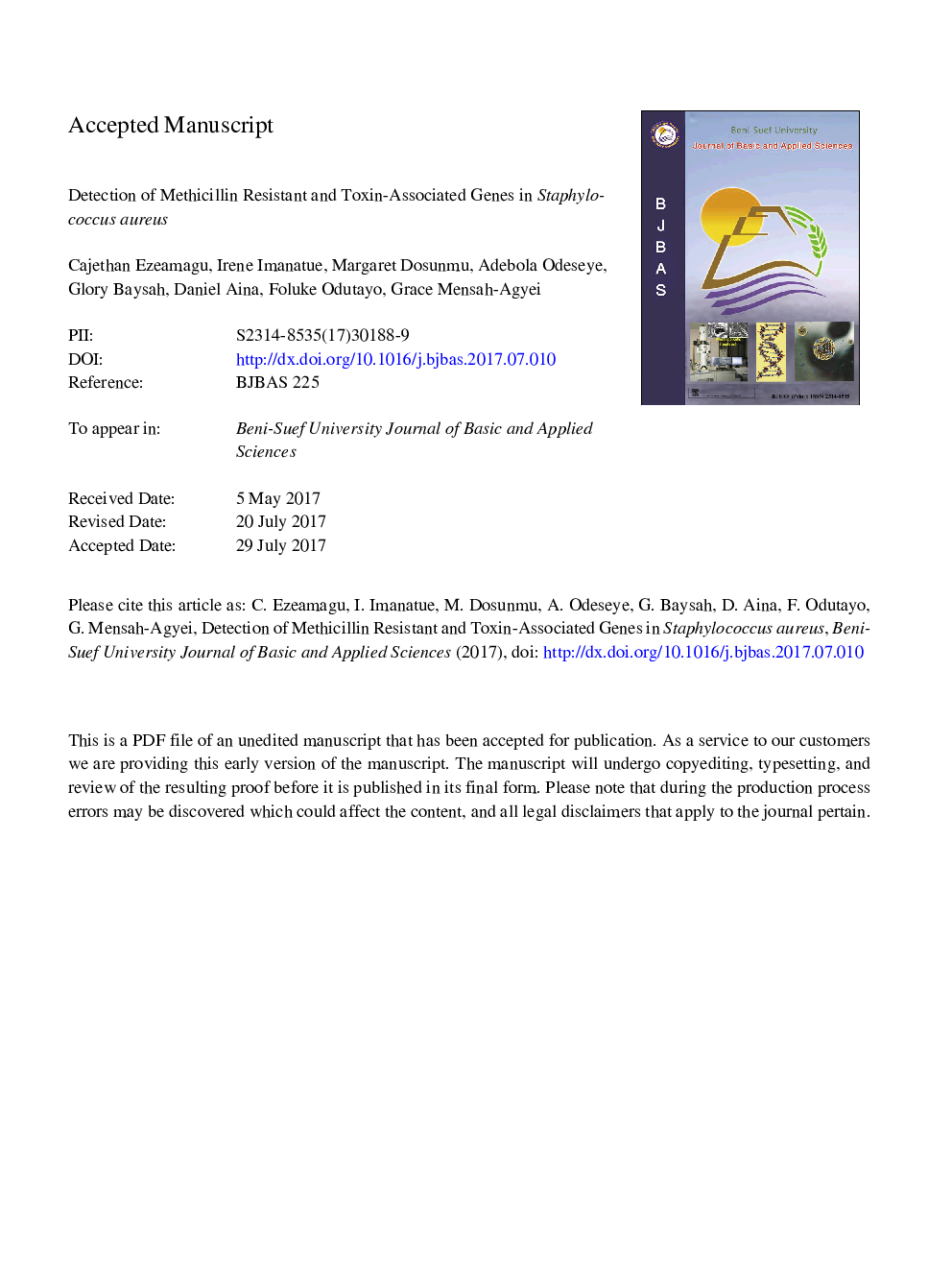| Article ID | Journal | Published Year | Pages | File Type |
|---|---|---|---|---|
| 7211427 | Beni-Suef University Journal of Basic and Applied Sciences | 2018 | 16 Pages |
Abstract
Methicillin-resistant Staphylococcus aureus is a problem in both healthcare institutions and community settings. This is due to its multi-drug resistant challenges. Hence, this study assessed the prevalence of methicillin resistant gene (mecA), exfoliative toxin (eta and etb) and toxic shock syndrome (tsst-1) genes in S. aureus isolated from clinical samples. A total of 120 clinical samples of patients (urine, high vagina swab (HVS), semen, wound swab, sputum and urethral swab) from a hospital laboratory were obtained. S. aureus was isolated and then identified with API-staph kit. Antibiotic susceptibility of the isolates was determined by agar diffusion while PCR was used to detect the presence of mecA and toxin-associated genes. Fifty S. aureus isolates were obtained at frequencies of 26(52%), 12(24%), 4(8%), 3(6%), 3(6%) and 2(4%) from the HVS, urine, semen, wound, sputum and urethral swab samples respectively. All the isolates of S. aureus were resistant to the antibiotics used in this study. MecA, tsst-1, eta and etb were detected in 19(38%), 7(14%), 3(6%) and 2(4%) of the isolates respectively. The prevalence of MRSA and its resistance pattern observed in this study was a signal that the health-care workers and the general public are at risk.
Keywords
Related Topics
Physical Sciences and Engineering
Engineering
Engineering (General)
Authors
Cajethan Ezeamagu, Irene Imanatue, Margaret Dosunmu, Adebola Odeseye, Glory Baysah, Daniel Aina, Foluke Odutayo, Grace Mensah-Agyei,
